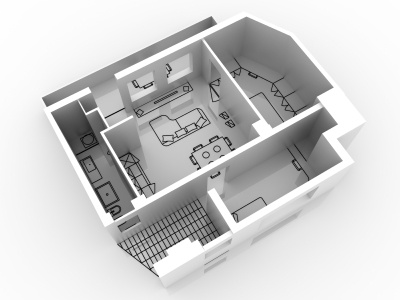Bob Aaron in Legal, Condo Buying
Should condominium corporations disclose the existence of Kitec plumbing to potential buyers on their status certificates? That was the question Natalie asked me after she had bought and sold a condominium townhouse on Kenneth Ave. last year.
Kitec plumbing is a type of flexible aluminum and polyethylene piping, often orange or blue in colour. It was widely used in condominiums between 1995 and 2007.
It was marketed as a corrosion-resistant alternative to copper pipes and fittings, but was recalled around 2005 due to a tendency to corrode at an accelerated rate. It is no longer manufactured.
The status certificate on Natalie’s purchase made no mention of the fact that the units contain Kitec plumbing. Unfortunately, at the urging of her agent, the transaction was not conditional on a home inspection which would have revealed the problem.
Although the board and property manager were no doubt aware that Kitec was used in the building, Natalie was not told about it.
When she resold the unit last month, the buyers learned of the potentially defective plumbing and Natalie had to drop the sale price by $30,000.
Natalie blames the board, the former and current property managers, and both real-estate agents on her purchase for failing to disclose the existence of Kitec.
The Real Estate Council of Ontario (RECO) is the industry regulator and, in the summer of 2015, it reminded real-estate agents of their obligation to discover and disclose material facts in their transactions. The existence of Kitec, RECO’s website advised, was one of the issues “that are often considered to be material fact.”
As well, the Ontario Real Estate Association, which publishes standard form sale agreements, has yet to amend them to include a warranty that there is no Kitec in the properties. Many agents insert into offers their own clauses representing that the homes or condos have not been used to grow marijuana or produce methamphetamines. But I have rarely, if ever, seen a Kitec warranty.
Patrick Greco, a condominium lawyer at Miller Thomson, notes in a condo blog that where there are signs plumbing failure is imminent and that repairs will be billed to unit owners, the existence of Kitec and replacement efforts should be reflected in paragraph 12 of the condo status certificate.
The situation is more difficult, Greco notes, where the condominium board knows of the existence of Kitec but there is no imminent risk of failure. In cases like this, the board has to balance the risk of causing undue alarm against the need to protect the building from litigation for failing to disclose the Kitec.
Greco’s opinion, and I agree with it, is that in most instances a building that contains Kitec plumbing ought to disclose this fact in status certificates.
“A corporation cannot favour resale prices over complying with the Condominium Act in failing to disclose circumstances which may result in an increase in common expenses,” he notes. “There are no easy answers,” he concludes.
Natalie is contemplating suing the vendors, both real-estate agents on her purchase, and the condo corporation for failure to disclose the Kitec to her. Litigation should not have been necessary in this case.
My recommendation to agents and condo corporations is disclose, disclose, disclose.
Bob Aaron is Toronto real estate lawyer. His Title Page column appears on this blog, Move Smartly, and in The Toronto Star. You can follow Bob on Twitter @bobaaron2 and at his website aaron.ca Email Bob




